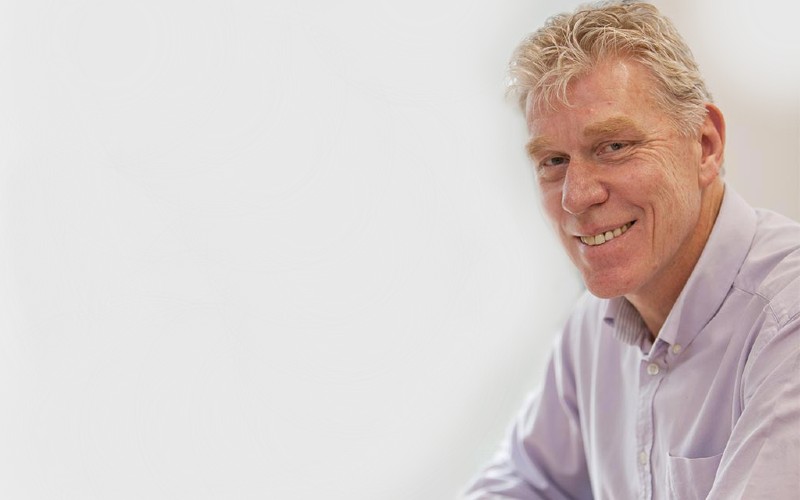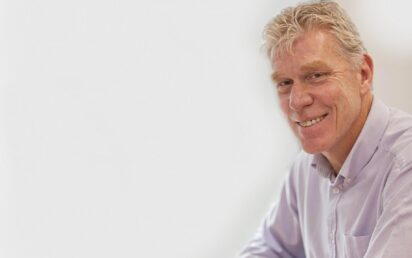The CEO of Isansys says 2024 is shaping up to be a breakthrough year for the MedTech firm.
Keith Errey founded Isansys with Rebecca Weir in 2010 with the aim of putting wireless monitoring systems and data-driven decision-making into the hands of clinicians.
Headquartered in Abingdon, Oxfordshire, its Patient Status Engine (PSE) combines wearable sensors, wireless connectivity, predictive AI analytics, dashboards and alerting for advanced patient monitoring in hospital, home and community settings.
After it recently announced plans to transform healthcare in Africa, BusinessCloud caught up with Errey to find out how commercial adoption of the PSE has progressed in the past year.
“We have witnessed the first fully commercial adoption of our Patient Status Engine technology as standard care in hospitals,” he tells us. “In Europe, these are principally in Scandinavia; outside of Europe, these are in India.
“We are seeing increasing adoption and have contracts with all the major hospital groups in India.”
Isansys Lifecare – Every patient monitored, connected and safe
Challenges
Errey says its greatest current challenge is scaling up to meet demand. “While our platform has been designed to scale, managing and increasing production across our supply chain and subcontract manufactures is our current focus,” he explains.
“In certain countries we face large import tariffs, so we are also off-shoring some of the supply chain and manufacturing to local producers in these territories.
“It would be great if we could keep all of the manufacturing in the UK; but the unique place of healthcare, medical devices and HealthTech as areas of national strategic interest and control mean that many countries want to protect national suppliers and maintain internal supply chains.
“Our response to this, because healthcare is always delivered locally, is to find – or create as joint ventures – local companies to become licensees of our technology and distribution partners in their local regions.”
However the home market for Isansys is proving a typically difficult nut to crack. “It’s a sad but well known fact that adoption of new technologies by the NHS is particularly difficult and challenging,” he says.
“A technology such as the Patient Status Engine, which has the potential to enable fundamental improvements in efficiencies and patient care, faces even greater difficulties precisely because such change is hard and requires initial investment before the improvements and efficiency gains can be realised.
“In order to build a business with a viable commercial future, it is necessary to look and work outside the UK.”
The huge United States market is enticing, but also poses challenges. “Apart from a few opportunistic sales, we haven’t made a major push into the very complex and tough healthcare market there,” admits Errey.
“Developing our US go-to-market strategy is an ongoing project for which we are seeking channel and financial partners.”
Fundraising
Errey says the tough fundraising climate is particularly acute for MedTechs in light of the failure of Babylon Health.
“The last year and a half has been very difficult in terms of raising funds. Coming down off the top of the digital health hype curve, spectacularly illustrated by high-profile failures such as Babylon, investors are much more cautious of digital health companies,” he says.
“While we are a business providing a unique hybrid platform-as-a-medical-device, we tend to get seen as part of a digital health wave that lost a lot of money for a lot of people.”
Isansys is a key participant in a €10 million Horizon project developing personalised digital twins of patients suffering or at risk of atrial fibrillation related stroke.
It has also built out its executive team with the arrival of Louise Miller and Dr Heather Duncan as COO and chief clinical officer respectively.
“Not only has Dr Heather Duncan brought a great deal of clinical credibility, but her background in leading and inspiring teams in complex and challenging work environments has already brought a range of benefits to our own staff,” says Errey.
“Louise Miller, with a PhD and background in process modelling and improvement in the medical device and related industries, is now engaged in scaling up our current manufacturing processes and designing new processes to meet the future demand for our systems.”
Errey hails the commitment and hard work of his “incredible” wider team and the “support and faith” of its investors.
“Our most powerful asset is the shared belief that what we are doing is good, is necessary and slowly but surely will save millions of lives and help change the way healthcare is delivered globally,” he says.
“Compared with industry peers and perceived competitors, we have come far and achieved more on a fraction of what they have spent to get no further in this difficult but inevitably huge market.”
Why do 10,000 people die unnecessarily every year in UK hospitals?


